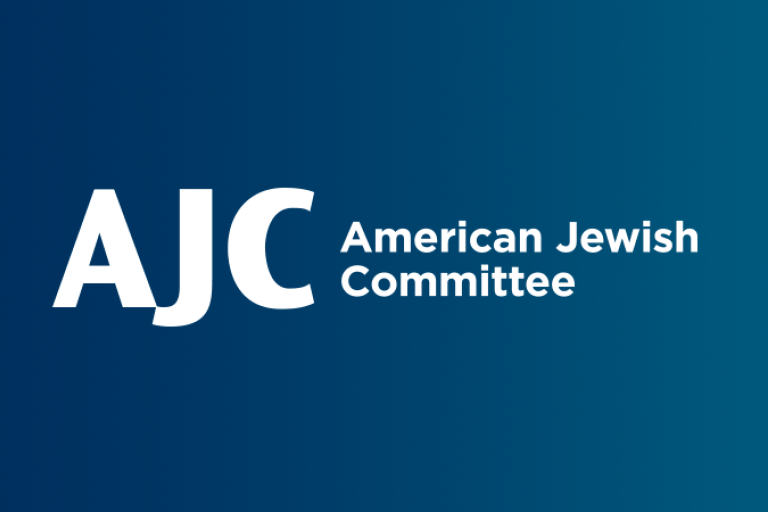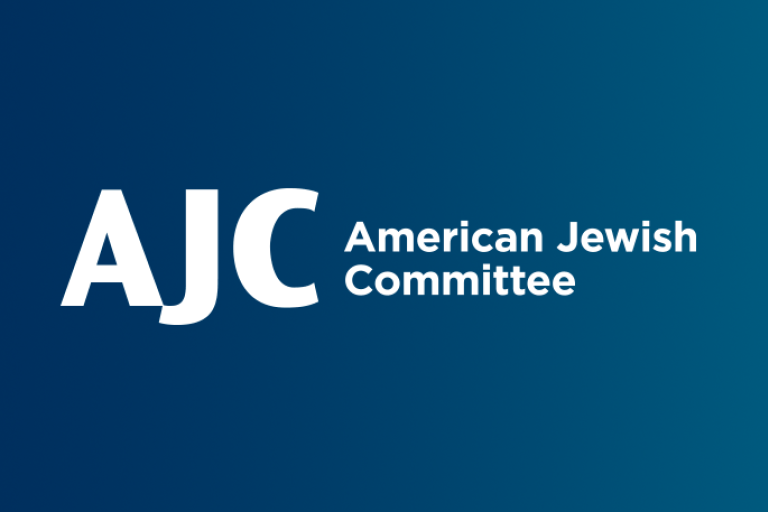July 12, 2024
During the Great Debate at AJC Global Forum 2024, representatives for the Republican and Democratic parties each made their case for why their candidate was the best choice for the American Jewish community. But what’s on each party’s political agenda during this election cycle?
When Republicans gather for their national convention in Milwaukee on July 15, and Democrats meet in Chicago on August 19, both parties will present their platforms for the 2024 election. Republicans unveiled their 2024 platform ahead of the convention — the first revision in eight years after the party simply reaffirmed its 2016 language in 2020. For both parties, it will be the first platform drafted after Hamas’ October 7 attack.
In the wake of the worst massacre of Jews since the Holocaust, here are five planks AJC is urging both parties to incorporate into their platforms and address during their conventions, paired with what they said most recently on each topic. AJC is a nonpartisan, 501(c)(3) nonprofit organization. As such, AJC does not endorse or oppose political parties or candidates.
1) Maintaining a Strong U.S.-Israel Relationship
Throughout its 75-plus-year history, Israel, like the U.S., has been a beacon of democracy. It has enjoyed a strong alliance with the American people and its government. The U.S. must condemn those who disregard Israel’s legitimacy and seek to hold Israel’s behavior to a standard applied to no other nation.
Bipartisan support, as well as the enduring tradition of providing U.S. security assistance to Israel, is critical. This includes addressing terror threats such as removing Hamas from Gaza and sanctioning the Hezbollah terror army backed by the Iran regime.
What do the latest platforms say?
Democrats in 2020: “Democrats believe a strong, secure, and democratic Israel is vital to the interests of the United States.”
Republicans in 2024: “Prevent World War 3, restore peace in Europe and in the Middle East, and build a great iron dome missile defense shield over our entire country -- all made in America.”
2) Promoting Israel’s Place in the World
As the October 7 Hamas massacre and Israel’s military response continue to convulse the region and shape perceptions about Israel, the U.S. must strive – in close cooperation with allies and partners in the region – to strengthen the Abraham Accords and promote normalization between Israel and Arab countries.
When it comes to working toward a solution to the Israeli-Palestinian conflict, any path to Palestinian statehood alongside the modern Jewish state of Israel must include working with Palestinian leadership to abandon educational curricula and civic practices that demonize Jews, or payment structures that reward and incentivize terrorism.
What do the latest platforms say?
Democrats in 2020: “Our commitment to Israel’s security, its qualitative military edge, its right to defend itself, and the 2016 Memorandum of Understanding is ironclad. Democrats recognize the worth of every Israeli and every Palestinian. That’s why we will work to help bring to an end a conflict that has brought so much pain to so many.”
“Turning the page on two decades of large-scale military deployments and open-ended wars in the Middle East does not mean the United States will abandon a region where we and our partners still have enduring interests. Democrats believe it's past time, however, to rebalance our tools, engagement, and relationships in the Middle East away from military intervention—leading with pragmatic diplomacy to lay the groundwork for a more peaceful, stable, and free region.”
Republicans in 2024: “We will stand with Israel, and seek peace in the Middle East. We will rebuild our Alliance Network in the Region to ensure a future of Peace, Stability, and Prosperity.”
3) Countering Iran’s Power in the Middle East
With its nuclear ambitions, advanced missile program, proxy armies, and support for terror, the Iranian regime poses a profound danger to American interests and allies, and to global peace and security. The Iranian regime's increasing collusion with Russia, China, and North Korea must also be of particular concern to the U.S. and our allies.
Tehran’s terrorist proxies, including Hezbollah, Hamas, Palestinian Islamic Jihad, the Houthis, and the Iraqi Popular Mobilization Units (PMU), pose an existential threat to Israel, America’s key ally.
Meanwhile, negotiations to revive the Joint Comprehensive Plan of Action (JCPOA), the Iran nuclear deal, have started, stalled, and stopped as Tehran flouted one commitment after another while reportedly stockpiling enough highly enriched uranium to make a bomb, threatening Israel’s existence.
The U.S. and coalition partners must intensify their retaliatory actions against Iran and its proxies, including the Houthis and related militias, for hostile acts that have taken the lives of American soldiers, among others, and could widen the current conflict.
Universal designation of the Islamic Revolutionary Guard Corps and Hezbollah as terrorist entities; insistence on International Atomic Energy Agency access to, and monitoring of, declared and suspected nuclear sites; and full enforcement of oil, missile, and arms transfer sanctions, should be the beginning but not the end of concerted allied steps to deter and punish Iranian violations of international law.
What do the latest platforms say?
Democrats in 2020: “We believe the Joint Comprehensive Plan of Action (JCPOA) remains the best means to verifiably cut off all of Iran's pathways to a nuclear bomb. The Trump Administration’s unilateral withdrawal from the JCPOA isolated us from our allies and opened the door for Iran to resume its march toward a nuclear weapons capacity that the JCPOA had stopped. That’s why returning to mutual compliance with the agreement is so urgent. … The nuclear deal was always meant to be the beginning, not the end, of our diplomacy with Iran. Democrats support a comprehensive diplomatic effort to extend constraints on Iran's nuclear program and address Iran's other threatening activities, including its regional aggression, ballistic missile program, and domestic repression.”
Republicans in 2024: “Republicans will strengthen Economic, Military, and Diplomatic capabilities to protect the American way of life from the malign influences of Countries that stand against us around the World.”
4) Addressing Antisemitism
Communities throughout the United States are currently seeing an unprecedented rise in antisemitism. According to AJC’s State of Antisemitism in America 2023 report, more than 6 in 10 American Jews say the status of Jews in the United States is less secure than a year ago.
Every level of government should consider adopting its own strategy to counter antisemitism. Corporations, social media platforms, academic institutions, media, and influential voices – among others – play critical roles in countering and depoliticizing antisemitism. Hate crimes reporting must be strengthened and Jewish American heritage should be celebrated alongside the multitude of other cultures that make up the U.S.
ACT NOW: Ensure Both Parties Address Antisemitism
What do the latest platforms say?
Democrats in 2020: “We will give hate no safe harbor. We will never amplify or legitimize the voices of racism, misogyny, anti-Semitism, anti-Muslim bigotry, or white supremacy. Democrats will protect and promote the equal rights of all our citizens—women, LGBTQ+ people, religious minorities, people with disabilities, Native Americans, and all who have been discriminated against in too many ways and for too many generations.”
Republicans in 2024: “Republicans condemn antisemitism, and support revoking Visas of Foreign Nationals who support terrorism and jihadism. We will hold accountable those who perpetrate violence against Jewish people.”
5) Advancing Democratic Values and Human Rights
America has a vital role to play in combating the assault on liberal democracy taking place in many countries. This assault is all too often coupled with a rise in antisemitism and prejudice against minorities.
Both parties should hold governments accountable for upholding universal human rights commitments and norms and commit to developing clear policy to prevent and prosecute mass atrocity crimes, the risk of which has risen due to global instability.
Longstanding diplomatic relationships – with transatlantic allies, neighbors, trans-Pacific partners, moderate Arab states, and stalwart allies like Israel – are essential to address myriad global threats.
While the U.S. cannot be the world’s policeman, history has amply shown that when the U.S. withdraws—or is perceived to retreat—from the global stage, dangerous vacuums are created, and others—both state and non-state actors—seek to fill them, pursuing goals antithetical to our own. Our nation must be prepared to use all the tools of statecraft to project leadership, vision, strength, and a commitment to human rights.
What do the latest platforms say?
Democrats in 2020: “Democrats will not only repair our alliances, but reinvent them to advance mutual priorities and deal with new challenges. We believe our alliances are strongest when they are rooted in shared democratic values. That’s why we need to signal clearly our profound concerns about democratic backsliding in a number of ally states, and why we need to work with allied democracies to end democracy’s global recession.”
Republicans in 2024: “Defend our constitution, our bill of rights, and our fundamental freedoms, including freedom of speech, freedom of religion, and the right to keep and bear arms.”

